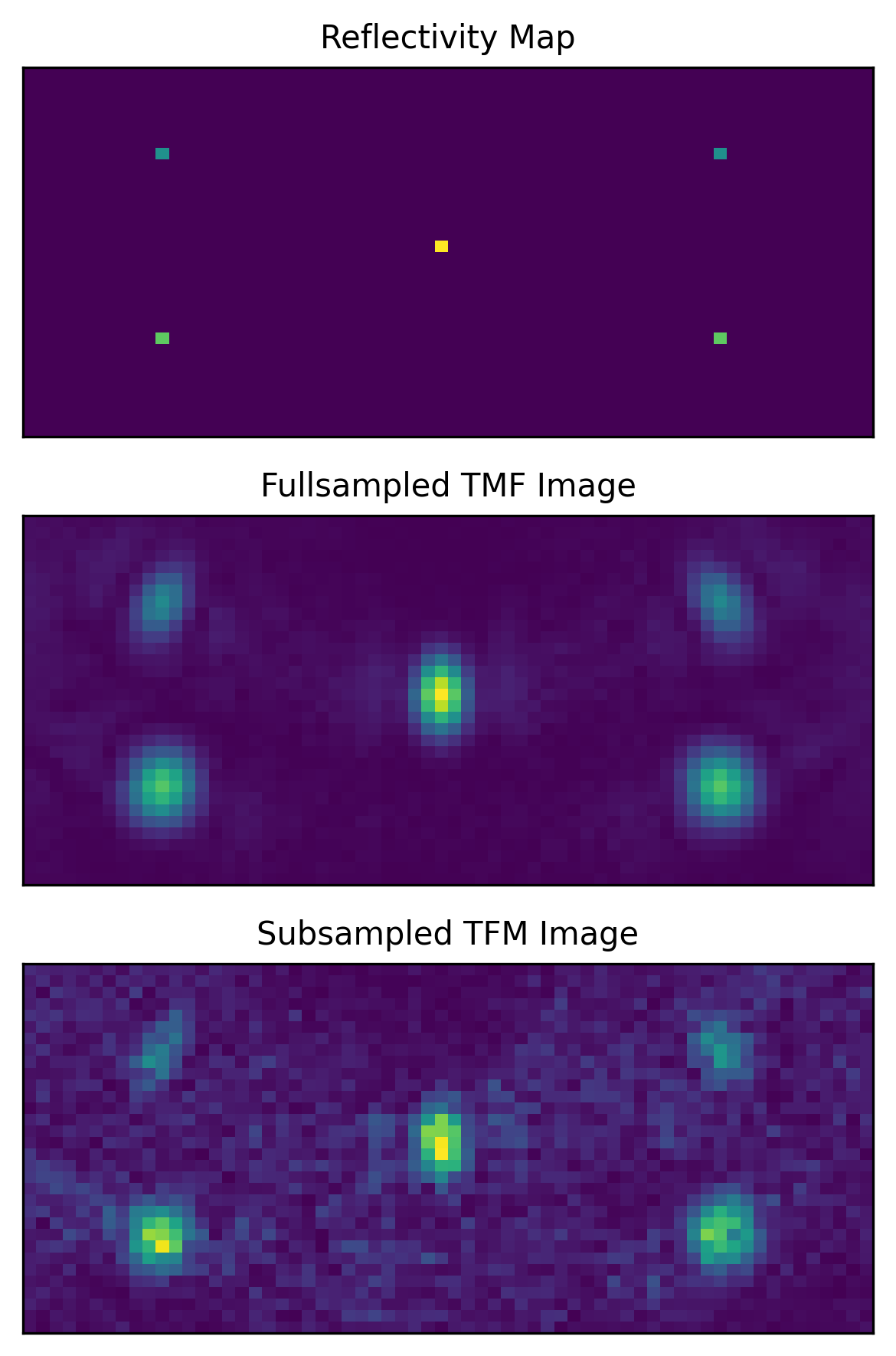Enhancing Total Focusing Method (TFM) Image Quality in Phased Array Ultrasonic Imaging with Subsampled Data
- Type of project: Research Project/Hauptseminar/Thesis (literature review + coding)
- Contact: han.wang@izfp.fraunhofer.de
Introduction
In the realm of phased array ultrasonic imaging, Full Matrix Capture (FMC) is a prevalent technique used to collect comprehensive data sets for image reconstruction. This method, however, generates a vast amount of data, necessitating significant storage and processing resources. To address these challenges, structured compressed sensing can be employed, involving a reduction in the number of active transmitters, receivers, and samples. While subsampling effectively reduces data volume, it unfortunately leads to a degradation in the quality of beamformed images generated using the Total Focusing Method (TFM). This trade-off between data manageability and image quality is a critical issue in the field. To aid in the understanding of this issue, the following figure presents three images for comparison: a ground truth reflectivity map, a fullsampled TFM image, and a randomly subsampled TFM image with a compression ratio of 12.5%.

The ability to accurately interpret ultrasonic images is crucial in various applications, ranging from medical diagnostics to non-destructive testing in engineering. The quality of these images directly impacts the effectiveness of these applications. Enhancing the quality of TFM images, even with subsampled data, could lead to more efficient and accurate ultrasonic imaging processes. This would not only save time and resources but also potentially improve diagnostic and inspection outcomes.
The topic may explore a range of solutions, such as advancing signal processing techniques for better image reconstruction from subsampled data, utilizing deep learning models like CNNs to enhance image quality from reduced datasets, and investigating different subsampling patterns to achieve an optimal balance between data volume and image clarity.
Requirements
- Foundational Knowledge in Signal Processing.
- Basic Understanding of Deep Learning.
- Programming Skills: Python and PyTorch are desired.
- Commitment to Research.
- Independent and Collaborative Work Skills.
Reference
[1] H. Wang, Y. Zhou, E. Pérez, and F. Römer. Jointly learning selection matrices for transmitters, receivers and Fourier coefficients in multichannel imaging. In Proceedings of the 2024 IEEE International Conference on Acoustics, Speech and Signal Processing (ICASSP-2024), Seoul, Korea, 2024.
[2] E. Pérez, J. Kirchhof, F. Krieg, and F. Römer, Subsampling Approaches for Compressed Sensing with Ultrasound Arrays in Non-Destructive Testing, in MDPI Sensors, vol. 20, issue 23, Nov 2020.
Supervisor
- Dr. Ing. Florian Römer, M. Sc. Han Wang
- Email: han.wang@izfp.fraunhofer.de